FOR IMMEDIATE RELEASE — JOINT PRESS STATEMENT
DEQ Director Approves Aquila Back Forty Mine Wetland Permit, Despite DEQ Objections
STEPHENSON, MI — Environmental groups are crying foul over Monday’s decision by the Michigan Department of Environmental Quality (DEQ) to approve the Aquila Back Forty Wetland Permit. In a joint statement, the Mining Action Group (MAG) of the Upper Peninsula Environmental Coalition (UPEC), the Front 40 Environmental Fight, and numerous regional environmental groups say they are outraged by the unwarranted approval and are calling on DEQ Director to explain her decision.
“This smells rotten. Director Grether’s approval of the Aquila Back Forty Wetland permit was a political act, directly contradicting the recommendation of DEQ’s own Water Resources Division (WRD). This permit is inconsistent with the Clean Water Act,” said Kathleen Heideman of the Mining Action Group.
The Wetland permit should have been denied, according to the agency’s “Findings of Fact”:
“After due consideration of the permit application, on-site investigation and review of other pertinent materials, the Water Resources Division finds that the project does NOT demonstrate that an unacceptable disruption to the aquatic resources of the State will not occur and that the activities associated with the project are NOT consistent with the permitting criteria for an acceptable impact to the resources regulated under Parts 301, Inland Lakes and Streams, and Part 303, Wetlands Protection.”
Even the DEQ’s decision letter was not an endorsement: “We have determined that the (Back Forty) project as proposed could not be permitted without additional supporting documentation because the hydrologic modeling provided does not define the anticipated impacts to aquatic resources.”
Ron Henriksen, spokesperson for the Front 40 Environmental Fight, was stunned. “Against the findings of Water Resources staff, Director Grether of the DEQ granted a permit with 28 pages of ‘Special Conditions.’ Why wasn’t this permit denied? The serious hydrological concerns we’ve raised remain unaddressed. Aquila’s mine will harm wetlands of the Menominee River and aquatic resources shared by Michigan and Wisconsin, yet these concerns were somehow overruled. The Menominee River certainly deserves better.”
Overlooking the application’s gaping holes, DEQ issued Aquila’s Wetland permit “conditionally” and has required “submission and approval” of key additional information including “revised hydrologic modeling, an adaptive management plan, a comprehensive monitoring plan, and requisite wetland and stream mitigation.” Under the Clean Water Act, however, this information must be provided BEFORE a wetland destruction permit is granted, not after.
“Accurate hydrologic modeling, monitoring, and compensatory mitigation based on real data are the foundational requirements of a wetland permit application, not special permit conditions! By law, Aquila should have provided this information at least two years ago. This is fundamental to the review of any Wetland permit application,” said Steve Garske of the Mining Action Group.
The Clean Water Act requires compensatory mitigation ratios based on total wetland impacts, and a clear demonstration that the proposal is the Least Environmentally Damaging Alternative. According to the DEQ Water Resources Division’s “Finding of Fact and Conclusion of Law”, the “application does NOT demonstrate that a feasible and prudent alternative does not exist. The application fails to fully define the extent of impacts to regulated resources.” Grether, in approving the permit, ignored the conclusions of those regulators who understood the permit application and its myriad failings.
How Was the Back Forty Wetland Permit Approved?
In a “Wetland Augmentation Plan” recently submitted to the DEQ, Aquila hedged the validity of their data, claiming that “confirmation of the findings pursuant to the modeling can only be accomplished by wetland hydrology and vegetation monitoring during mining operations.” Bad data? No problem, the mine said. Simply pump water from the Menominee River into the wetlands if impacts exceed estimates.
A few weeks earlier, Aquila recalculated their wetland impacts using a hydrological method recommended by multiple technical reviewers, and reported a 50% increase in the total acres of wetland impacts caused by dewatering — the application was getting worse, rather than resolving state and federal concerns.
“I am shocked by DEQ’s approval of the Aquila Wetland permit: in my judgement, there was an airtight case against it. We stand by our extensive technical comments, even though Grether chose to ignore the independent reports we commissioned. With her hasty political decision, the Director says science will not sway her approval process: ‘Mines first, environment be damned!’ Through our efforts, reviewing this permit, regional environmental groups demonstrated the Back Forty mine is a disaster in the making. Polluting the Menominee River again? Harming aquatic life? Damaging wetlands? For our survival, Aquila Resources and the State of Michigan must look beyond short-term profits,” said Horst Schmidt, president of the Upper Peninsula Environmental Coalition.
Strong Federal Objections
The EPA’s objections were first announced in a March 8th, 2018 letter to the Michigan DEQ:
“The applicant has not provided a complete description of the project, including a final site plan identifying the final location of key project features, including storm water and waste management features. The proposed site layout is not consistent with the approved state Permit to Mine. Nor are all impacts of the project identified in the application, including impacts caused by any planned underground mining, a power plant, and mining water management systems. Without this information, the reviewing agencies cannot adequately assess the extent of the proposed mine’s impact on aquatic resources as required by the CWA, and or determine whether the applicant has minimized and avoided aquatic resource impacts, as required.”
The EPA letter pointed out that Aquila “states that the project will not adversely affect water quality of the Menominee River but does not explain how the project will be managed to ensure discharges will meet water quality standards, including sufficient monitoring locations, minimization measures, and adaptive management procedures to prevent leaching of toxic compounds from mine storage facilities and from the mine pit into the River.”
The EPA objected to “Aquila’s failure to adequately characterize secondary impacts to wetlands and “lacks information regarding the extent of wetlands that will be impacted by the project and how these wetlands will be affected by the proposed project’s Menominee River drawdown of some 125,000 gallons per day.”
The EPA found that Aquila failed to provide adequate support for their determination that “offsite upland alternatives for some mine features (e.g., tailings storage) are not practicable”, and that they did not provide “needed information to determine whether some 500 acres of wetlands and uplands that were selected for preservation meet statutory requirements to be used as wetland and stream mitigation.”
EPA directed the DEQ to “resolve those concerns” within 90 days. If not resolved in that time, DEQ was “directed to deny the permit for the mine.” But Aquila Resources did not resolve these concerns. There is still NO finalized site plan or acknowledgement of planned underground mining facilities, NO approved plan to prevent leaching of toxins into the Menominee River, NO accurate hydrological model for the mine site, and the Back Forty wetland impacts remain UNKNOWN.
All Federal Objections Were Mysteriously Rescinded
“This decision is a stunning example of big-money politics taking precedence over the public good,” said Garske.
“I’d like to say I was surprised by the approval of the Back 40’s wetland permit, but actually was not,” said Deb Skubal of the Front 40. “This whole outcome is consistent with how the DEQ has operated thus far. The Director went so far as to write “the project as proposed could not be permitted without additional supporting documentation”. My conclusion: Aquila Resources has never put any effort into a serious wetland permit request, and DEQ knows it.”
“Aquila’s Wetland permit is the most inept, shoddy heap of paperwork I’ve ever seen. When the permit is held up to the light of legal scrutiny, light will shine in through a thousand holes,” said Heideman.
Environmental Groups Cry Foul: Statements on the Michigan DEQ Approval of Aquila Back Forty Wetland Permit
“We’re appalled that DEQ would overrule its own experts to cater to this company. The issuance of this permit defies the law and betrays the public trust.” – Dave Dempsey, senior advisor for FLOW (For Love of Water).
“A sulfide mine on the shores of the Menominee River endangers the health and way of life of the entire region to profit a foreign owned corporation. Michigan DEQ’s approval of the wetland permit an injustice to all of us.” – Raj Shukla, Executive Director of the River Alliance of Wisconsin.
“I pray for the wild rice people while I take note of the names of each and every federal and state official approving every single aspect of this 800 foot deep open pit mine less than 100 feet from the great Menominee River. Every single one of them must be held accountable when this fails and harms the fishery, the drinking water for millions of people and more. Accountability is a predominate conservative principal. They must all be held accountable in full measure.” – Jeffery Loman of the L’Anse Indian Reservation.
“The Michigan DEQ Director has issued the Back Forty Mine’s Wetlands Permit with 31 pages of conditions ignoring the scientific recommendations of the DEQ’s water quality division, and the overwhelming public opposition to the permit!” – John Engel, Sierra Club John Muir Chapter Executive Committee at Large Member.
“The MDEQ decision is a fundamental violation of their legal responsibility under the Clean Water Act to evaluate the impact of this project on wetlands, aquatic resources and the Menominee River. MDEQ has issued a permit without the faintest idea of what the impacts may be and have entrusted Aquila with the responsibility of assessing the impacts and taking appropriate actions to prevent the adverse impacts that are prohibited by the Clean Water Act. This is the same thing as letting the mining company write their own permit without transparency or accountability to the public, the Menominee Indian Tribe or the environment.” – Al Gedicks, Executive Secretary of the Wisconsin Resources Protection Council.
“DEQ’s approval of the wetlands permit obviously ignored the opposition to this mine by thousands of people. Why were we ignored?” – Dick Dragiewicz, avid Menominee River fisherman.
“The Wisconsin Smallmouth Alliance is extremely dismayed at this blatant disregard for our pristine environment and cultural heritage.” – Jerry Pasdo, President of the Wisconsin Smallmouth Alliance.
“This certainly is not the end of our opposition; it is the resurrection of government ‘of the people, for the people, and by the people.’ We stand united with organizations all across the state of Wisconsin and Michigan, and we are in it for the long haul.” – Dale Burie, President of the Coalition to SAVE the Menominee River, Inc.
“The fact that eight Native American tribes have fought this mine should have been enough. Or the fact that the Menominee River was selected as one of the ten most endangered rivers in America. Or the amount of local opposition. An open pit mine on the edge of a river that flows directly into the Great Lakes — SWP staff can’t imagine a worse location.” – Carl Lindquist, Executive Director of Superior Watershed Partnership and Land Trust
“The Department of Environmental Quality’s disappointing decision represents yet another fundamental failure by the agency to safeguard Michigan’s precious water resources. We continue to see the DEQ give preference to polluting industries, in this case allowing a mining company to make fortunes while polluting the pristine waters of the Upper Peninsula. The impact of this reckless decision will be felt for generations, with negative impacts on waterways in both Michigan and Wisconsin.” – Bob Allison, deputy director at Michigan League of Conservation Voters.
“Michigan Environmental Council (MEC) and our members are extremely frustrated by DEQ’s issuance of this wetland permit. In particular we are concerned by the large and complex nature of the many extra permit conditions that the DEQ has elected to apply in this case. These additional requests appear to be an attempt to force the mining company to fix major shortcomings that should have been resolved as part of their Part 632 mining permit — including mine closure issues, groundwater modeling needs, adequate baseline data, etc. The extensive conditions of the wetland permit, alongside the basic fact the the mine site plan the company used to get their wetlands permit was completely different than the plan they used in their earlier Part 632 mining permit, suggest to us that the DEQ is simply determined to allow risky mining operations to move forward, even if their plans to protect our water resources are inadequate and flawed. If this company can protect Michigan’s precious water resources as required by law — and that is a big “if” — then the MDEQ should require them to prove it before granting them rights to dig an open-pit mine, unleash acid mine drainage, and process their ore with cyanide in this beautiful and uniquely vulnerable place.” – Chris Kolb, Michigan Environmental Council President.
Key Files
Aquila Back Forty Wetland Permit, Issued 6-4-18
https://www.michigan.gov/documents/deq/wrd-back-forty-permit-wrp011785_624647_7.pdf
Supplemental Comments on Aquila Back Forty “Wetland Augmentation Plan”, Mining Action Group, 5-31-18
http://bit.ly/Augment-Deny
Findings of Fact and Conclusions of Law – Water Resources Division, Michigan DEQ, 4-30-18
http://bit.ly/Findings-of-Fact
EPA Objection Letter, 3-8-18
http://bit.ly/EPAobjects-Back40
EPA Objects to the Issuance of Aquila Back Forty Wetland Permit, 3-15-18
http://bit.ly/EPA-Objects-to-Wetland-Permit
Acknowledgements
Technical review of the Aquila Back Forty Wetland permit was made possible by the generous support of groups and individuals concerned about the future health of the Menominee River. Working collaboratively, the Mining Action Group of the Upper Peninsula Environmental Coalition and the Front 40 secured grants and donations from Freshwater Future, Superior Watershed Partnership, the Western Mining Action Network, DuPage Rivers Fly Tyers (DRiFT), Northern Illinois Fly Tyers (NIFT), Badger Fly Fishers, M&M Great Lakes Sport Fisherman, Wisconsin Smallmouth Alliance, Fly Fishers International, Great Lakes Council of Fly Fishers International, the Emerick Family Fund, and individual fishing enthusiasts throughout the Great Lakes area.
Mission of the Upper Peninsula Environmental Coalition
Founded in 1976, the Upper Peninsula Environmental Coalition’s purpose remains unchanged: to protect and maintain the unique environmental qualities of the Upper Peninsula of Michigan by educating the public and acting as a watchdog to industry and government. UPEC is a nonprofit, registered 501(c)(3) organization. For more information, call 906-201-1949, see UPenvironment.org, or contact: upec@upenvironment.org.
Mission of the Mining Action Group
The UPEC Mining Action Group (MAG), formerly known as Save the Wild U.P., is a grassroots effort to defend the clean water and wild places of Michigan’s Upper Peninsula from the dangers of sulfide mining. Contact the Mining Action Group at info@savethewildup.org or call (906) 662-9987. Learn more about the Mining Action Group at miningactiongroup.org.
Mission of the Front 40 Environmental Fight
The Front 40 is a grassroots organization that was formed in early 2003 in response to the threat of a metallic mineral mine potentially being developed on the shores of the Menominee River in Lake Township, Michigan. It is the principal objective of the Front 40 Environmental Group to ensure that metallic sulfide mining operations are not allowed to adversely impact our rivers, lakes, groundwater and lands. Learn more about the Front 40 group: menomineeriver.com
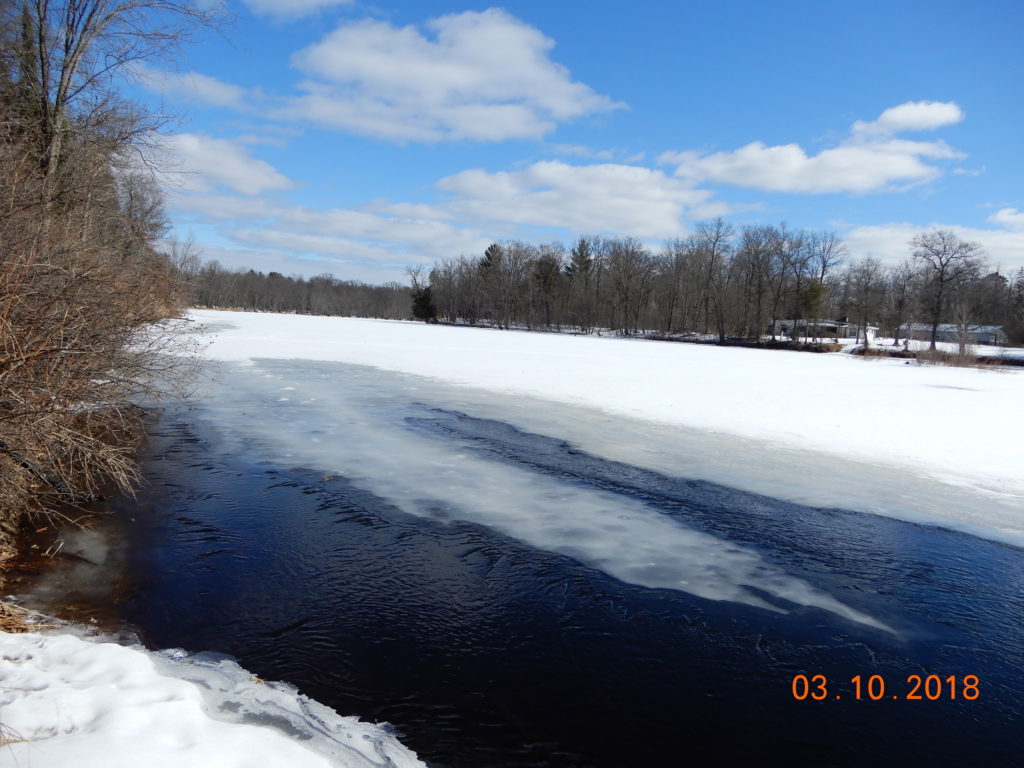
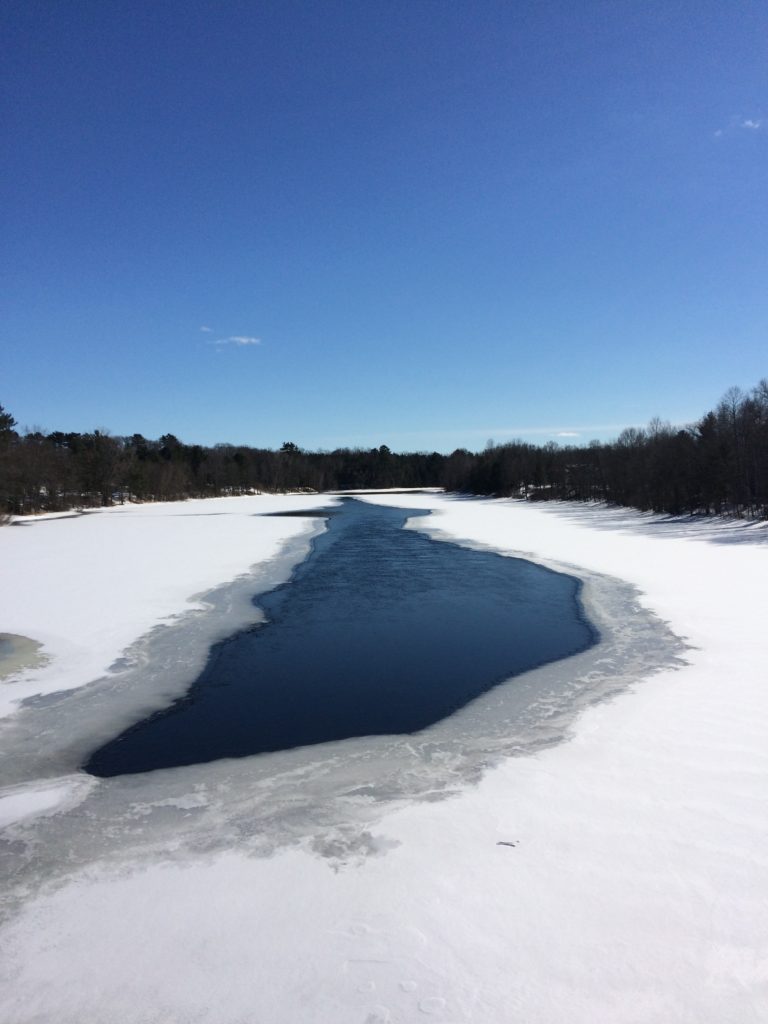
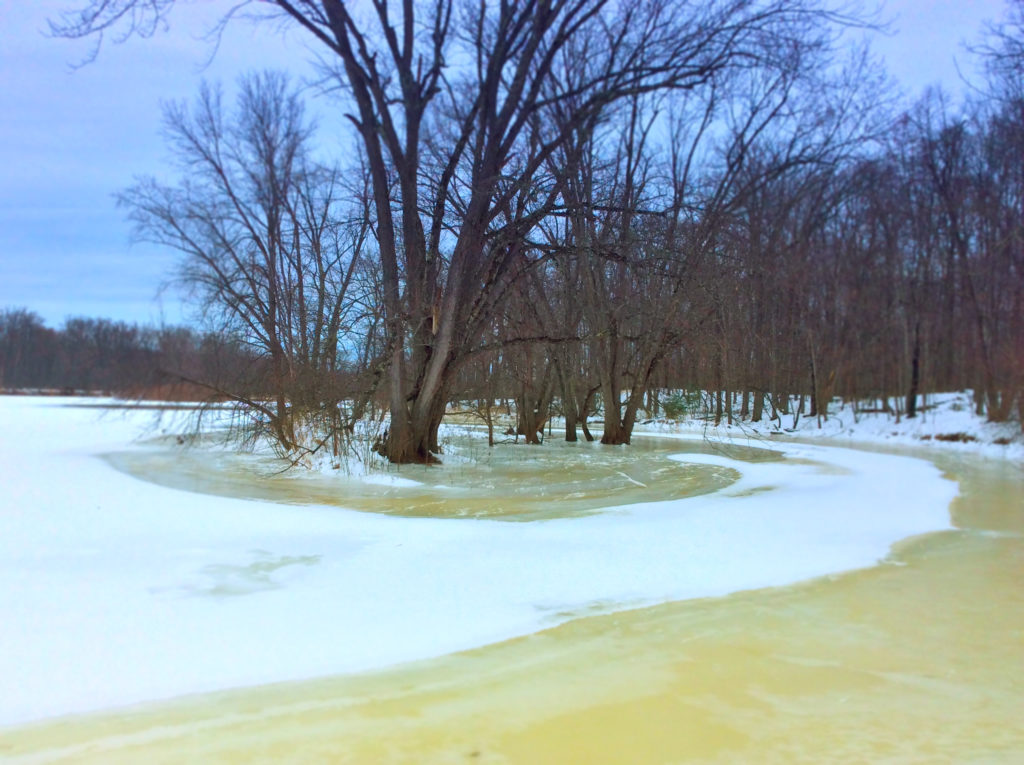
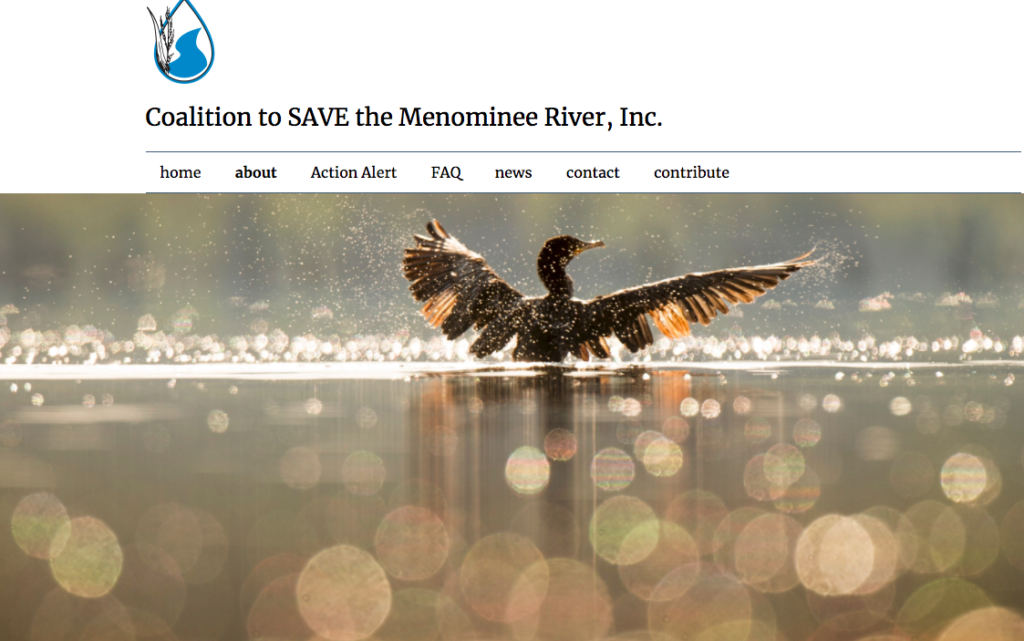

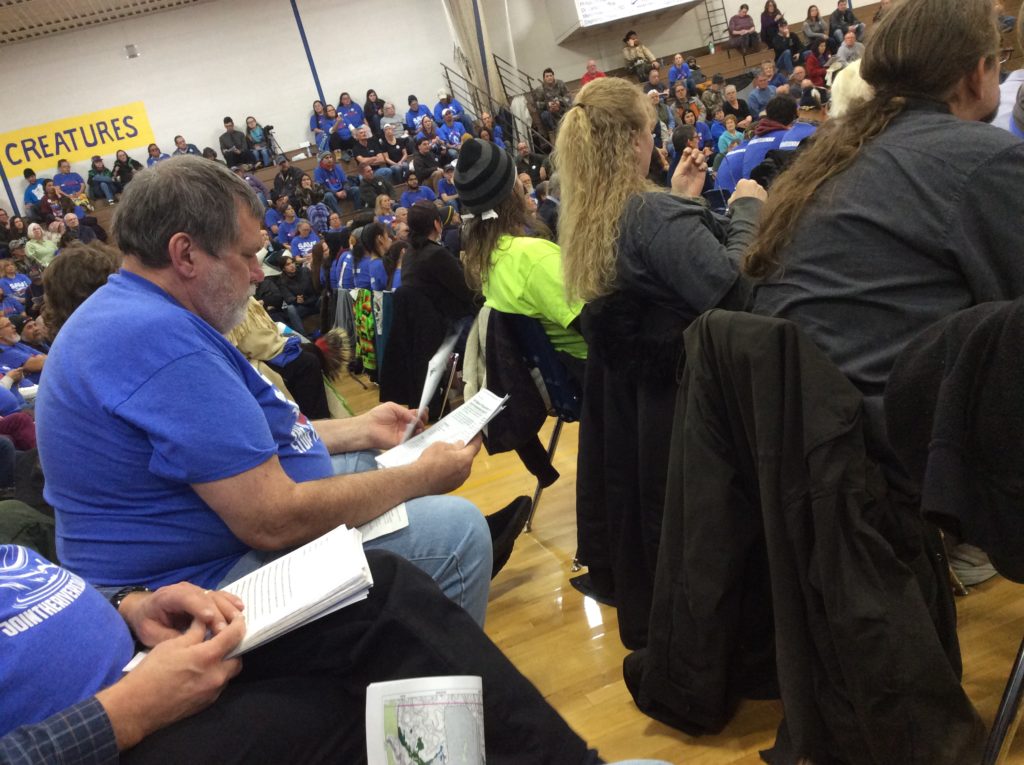 Meanwhile – on behalf of fishing groups and concerned citizens, the Mining Action Group of the Upper Peninsula Environmental Coalition and the Front 40 Environmental Group secured third party technical reviews of the Back Forty Wetland Permit. These technical reports have revealed errors and inconsistencies in Aquila’s claims: the hydrology review found that indirect impacts to wetlands caused by groundwater drawdown will be far greater than claimed by Aquila, and CSP2’s review found fundamental problems with the mine’s feasibility analysis, also known as the “Least Environmentally Damaging Practicable Alternatives” analysis. (
Meanwhile – on behalf of fishing groups and concerned citizens, the Mining Action Group of the Upper Peninsula Environmental Coalition and the Front 40 Environmental Group secured third party technical reviews of the Back Forty Wetland Permit. These technical reports have revealed errors and inconsistencies in Aquila’s claims: the hydrology review found that indirect impacts to wetlands caused by groundwater drawdown will be far greater than claimed by Aquila, and CSP2’s review found fundamental problems with the mine’s feasibility analysis, also known as the “Least Environmentally Damaging Practicable Alternatives” analysis. (